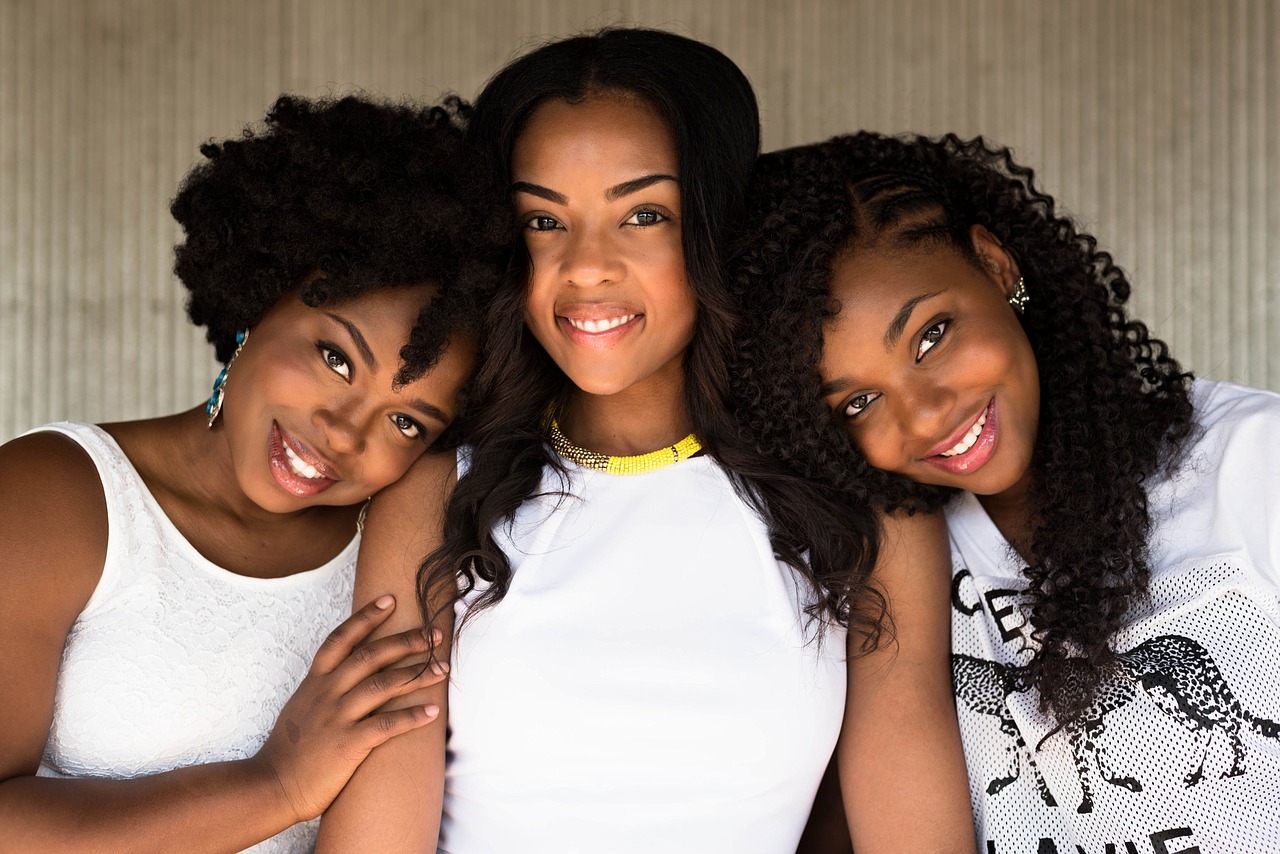As if the culture shock of leaving your home country is not enough to deal with, black girls have additional baggage to carry when it comes to taming their natural hair while studying abroad. Whether you have the texture of 4a, 3c or 4b mixed with 3b, your thick coils are inevitably tough to manage.
Styling hair might seem petty when the fulfilling perks of studying abroad go beyond the idea of superficial appearances. It’s true, something as simple as hair should never be stressful. Just because Afro-textured hair requires extensive maintenance does not mean that a black girl’s natural hair should go untreated for the sake of getting the full study abroad experience. Health is relevant in any country, even if that health involves tending to something as little as hair.
Moreover, many think that the act of moving to a new country does not have a significant effect on one’s thatch. They are wrong. For instance, the weather is an important factor to consider when deciding on a hairstyle.
While studying abroad, it is likely that the temperatures differ from one’s native country. The process of adapting to a new climate can be unpleasant but, even more, overwhelming for your hair to adapt. Your hair might react in a way that you have never seen because it is adjusting to new weather patterns.
The main issue that comes with dealing with natural hair is keeping it moisturized so that it won’t risk drying out. This is most important in the winter time, when cold air can cause the thickness of natural hair to grow thin.
If you plan on spending a semester in a country that is famous for its long, harsh winters, you will be introduced to a broad academic culture; however, your natural hair will suffer in the process, especially if you’re not used to spending long periods of time in cold weather. Not to mention that long winters call for wearing hats and gloves made of cotton material, a moisture vacuum.
If you’re a black female college student who is preparing to gain academic fulfillment in some exotic country but has absolutely no idea how you would care for your beautiful curls, no worries, for I have constructed a guide. Let’s get started.
Here lies the problem. Some might say that the easy solution is to bring your hair products with you. However, most black girls treat their hair with several products that allow them to maintain luscious-looking curls. The arsenal of products that she would have to fit inside of a suitcase calls for an unnecessarily high baggage fee. It is better for the countless products that make up a healthy regimen to stay home.
Others might say that you can purchase another set of the same products when you reach your destination. This is not a good idea. The moisturizing products that you purchased in the States might not be available on other continents because there is little to no demand for them. Also, it is not likely that there will be hairstylists in other countries who are well-versed in African American hair.
Nonetheless, do not lose hope. Like any problem, there is always a solution.
1. Protective Styles Are Your Friend
Straightening your natural hair daily can cause major heat damage that can take years to recover from. Styles such as box braids, lemonade braids and Marley twists are traditional styles that allow your hair to grow and take a break from hairdos that require heating tools. Protective braiding styles also allow the natural hair to sustain natural oils.
Braiding, twisting and plaiting are also styles that can last from two weeks to an entire semester, which is also the usual length of a study abroad program. Whether your natural hair can’t stand the harsh winters of Iceland or the humid summers in Jordan, braiding, plaiting and twisting tresses will keep your natural hair protected from any kind of climate.
2. Use Natural Products
As stated before, a different country may have a low demand for hair products that can tend to a black girl’s mane, and it will be difficult to find a stylist who knows how to treat Afro-textured hair. This is okay!
Once it’s time to unravel your braids and reveal your true hair texture, natural, virgin and unrefined products are the way to go.
Lucky for today’s African American college girls who are currently stuffing their carry-on with Shea Moisture, Cantu, Eco Styling gel and Murray’s edgewax, the demand for natural products is increasing globally in the food and cosmetics industry. Natural ingredients are perfect for treating natural hair and the market is growing in nearly every continent.
Natural ingredients can be found across the globe and can be used for cooking, skin care and, of course, natural hair treatments. Unrefined ingredients are now easy to find in today’s supermarkets and beauty supplies serve several needs for healthy hair.
Fortunately, coconut oil is in high demand in the States and overseas. The superfood can be used as a moisturizer, deep conditioner, leave-in conditioner and anti-frizz treatment. Additionally, the natural oil is a light ingredient that leaves natural hair with a luscious shine without the greasy aftermath. The oil serves multiple purposes, preventing you from spending your entire college budget on multiple products trying to create the perfect regimen.
The world’s transformation to a healthy lifestyle increases the international demand for unrefined ingredients, ultimately heightening the supply of products that can tackle Afro-textured hair.
Products like this will most likely be easy to find on any continent. Just make sure that you check your travel itinerary to see what local shops will be in proximity to the amazing sites you will be visiting.
3. Silk and Satin ONLY
It cannot be stressed enough that cotton material should never come in contact with hair. Cotton pillowcases will suck every bit of moisture out of each hair strand until you wake up one day with dry edges and split ends. Sleeping on a satin or silk pillow or covering your head with a silk or satin head wrap before going to sleep will retain your hair’s moisture and volume. You can also wear satin head wraps and silk turban styles that will keep your hair out of your face while retaining its moisture. Problem solved.
It is almost impossible to find a girl in any part of the world who has never experienced a bad hair day. Let’s face it. Sometimes, the stubborn beast on top of your head has a mind of its own. However, the thickness and distinctive texture of African American hair can make it extremely difficult to manage, especially if the hair is removed from a healthy regimen.
Every student deserves to enjoy the experience of studying abroad. Thanks to the affordable hair care products gradually making their way across the globe, generational hairstyles and the invention of satin and silk, studying abroad can be fun for all, despite the academic course load. Unfortunately, there isn’t any guide to avoid that.
















